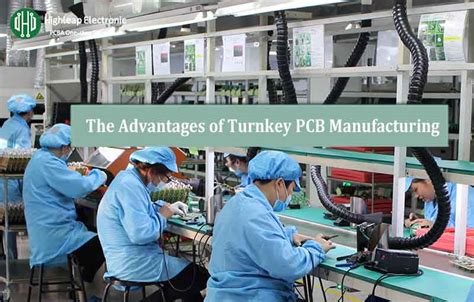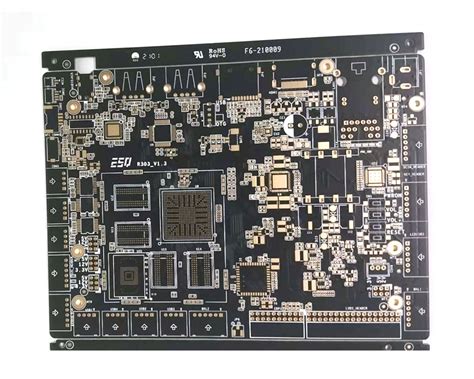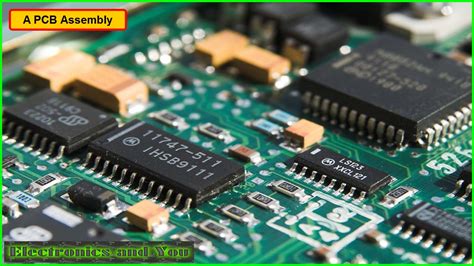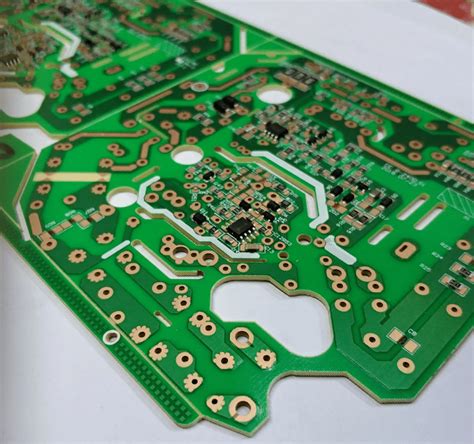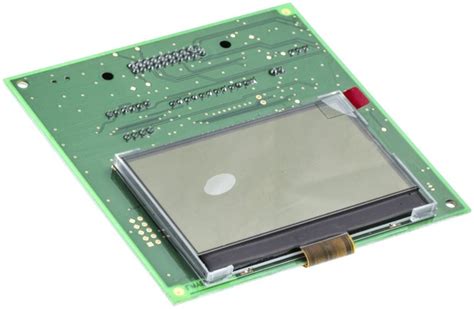Turnkey PCB Manufacturing: Precision, Speed & Scalability Combined

Key Takeaways
Modern turnkey PCB manufacturing integrates PCB assembly (PCBA) with precision engineering to deliver solutions that balance speed, quality, and scalability. By consolidating design, fabrication, and PCBA into a unified workflow, manufacturers eliminate fragmented processes, reducing lead times while maintaining rigorous quality standards.
A key advantage lies in scalable systems, which adapt to projects ranging from low-volume prototyping to high-volume production. This flexibility is enhanced by automated inspection tools and data-driven process optimization, ensuring consistency across batches.
| Aspect | Traditional Approach | Turnkey Solution |
|---|---|---|
| Speed | Multi-vendor coordination | Single-source integration |
| Cost Efficiency | Hidden logistical expenses | Transparent pricing models |
| Scalability | Limited by supplier capacity | Dynamic resource allocation |
| Quality Control | Disjointed testing protocols | End-to-end traceability systems |
Central to this approach is rapid prototyping, which accelerates iteration cycles without compromising the signal integrity of complex designs. Advanced PCB assembly lines equipped with AI-driven defect detection further minimize errors, aligning with stringent industry certifications. For enterprises prioritizing time-to-market, turnkey systems offer a strategic edge, merging precision engineering with scalable infrastructure to future-proof electronics development.

Streamlining Electronics With Turnkey PCBs
Modern electronics development demands seamless integration of design, fabrication, and PCB assembly to meet tight deadlines without compromising quality. Turnkey solutions address this by unifying every stage—from prototyping to PCBA (printed circuit board assembly)—under a single provider. This consolidation eliminates logistical bottlenecks, enabling engineers to focus on innovation rather than coordinating fragmented suppliers. By integrating PCB assembly with automated testing and component sourcing, manufacturers ensure error-free production cycles while maintaining traceability across batches.
Scalability is further enhanced through adaptable workflows that adjust to project complexity—whether producing 50 units for a startup or 50,000 for enterprise IoT deployments. Advanced PCBA providers leverage AI-driven analytics to predict material shortages or design flaws, preemptively optimizing timelines. Such systems also support rapid design iterations, crucial for industries like automotive or medical devices where compliance and precision are non-negotiable.
Transitioning to turnkey models reduces overhead costs by up to 30%, according to industry studies, while accelerating time-to-market by streamlining approvals and material procurement. The result? A holistic approach that aligns with evolving market demands, ensuring electronics projects scale efficiently without sacrificing reliability or performance.

Precision Engineering in PCB Manufacturing
Modern PCB assembly relies on precision engineering to ensure reliability in increasingly complex electronic systems. From multilayer board designs to microvia drilling, advanced techniques like laser direct imaging (LDI) and automated optical inspection (AOI) enable tolerances as tight as ±0.002 inches. This meticulous approach minimizes signal loss and thermal stress, critical for high-frequency applications such as IoT devices or aerospace systems.
A cornerstone of precision lies in material selection. High-Tg laminates and low-loss dielectrics are paired with controlled impedance routing to maintain signal integrity, while solder mask alignment accuracy ensures consistent PCBA performance. Manufacturers leverage parametric data analysis to refine processes iteratively, reducing defects like tombstoning or solder bridging.
Tip: Always validate design files with your manufacturer’s DFM (Design for Manufacturability) guidelines to avoid tolerance mismatches during PCB assembly.
Scalability is inherently tied to precision, as repeatable processes allow seamless transitions from prototyping to mass production. For instance, automated pick-and-place machines achieve placement accuracies under 10µm, ensuring uniformity across batches. By integrating PCBA testing protocols—such as in-circuit or functional testing—engineers can swiftly identify and resolve anomalies without compromising throughput. This synergy between exacting standards and adaptive workflows makes precision engineering the backbone of turnkey solutions.
Rapid Production for Scalable PCB Solutions
Modern electronics demand manufacturing frameworks that balance speed with flexibility. PCB assembly processes optimized for rapid production leverage automated placement systems and advanced soldering technologies, enabling manufacturers to reduce lead times by up to 40% compared to traditional methods. These systems integrate seamlessly with scalable workflows, allowing PCBA providers to adjust output from prototype batches to high-volume runs without compromising precision. By employing just-in-time material sourcing and modular production lines, manufacturers ensure consistent quality across orders of any size—whether 50 or 50,000 units.
A key advantage lies in the synchronization of design validation and fabrication stages. Real-time data sharing between engineers and production teams eliminates bottlenecks, accelerating time-to-market for complex designs. For instance, high-density interconnect (HDI) boards, which require meticulous PCB assembly techniques, benefit from this integrated approach by maintaining tolerances as tight as ±0.05mm even under compressed timelines. Additionally, scalable solutions incorporate predictive analytics to forecast material requirements, minimizing waste while adapting to sudden demand shifts. This agility makes PCBA services indispensable for industries like IoT and automotive, where innovation cycles are measured in weeks, not months.
By unifying speed with adaptability, turnkey systems ensure that scaling production aligns with evolving project needs—a critical capability in today’s fast-paced electronics landscape.
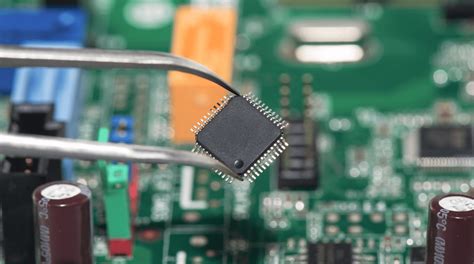
End-to-End PCB Services for Any Project
Modern PCB assembly demands seamless integration of design, fabrication, and testing to meet evolving technical requirements. End-to-end PCB services eliminate fragmented workflows by combining precision engineering, rapid prototyping, and scalable production under a single provider. Whether developing prototypes or scaling to mass production, these services ensure consistency across every stage—from schematic validation to final PCBA testing. Advanced manufacturers leverage automated optical inspection (AOI) and functional testing protocols to detect flaws early, minimizing rework and accelerating time-to-market.
A key advantage lies in customizable solutions tailored to project complexity. For low-volume batches, agile PCB assembly lines optimize cost-efficiency, while high-volume orders benefit from streamlined PCBA processes with traceable quality controls. Additionally, integrated logistics management simplifies material sourcing, reducing lead times and mitigating supply chain risks. By unifying design feedback loops with manufacturing execution, teams can iterate faster and adapt to design changes without compromising deadlines.
For startups and enterprises alike, end-to-end PCB services offer adaptable frameworks that align with budget constraints and technical specifications. This holistic approach not only enhances collaboration between engineers and manufacturers but also ensures that every project—from IoT devices to industrial systems—achieves optimal performance and reliability.

Quality & Speed in Turnkey PCB Systems
Modern PCB assembly processes achieve unparalleled quality and speed by integrating advanced manufacturing protocols with intelligent automation. Precision-driven optical inspection systems (AOI) and X-ray verification ensure PCBA integrity at every stage, reducing defect rates to <0.1% while maintaining ISO-certified standards. Concurrently, automated pick-and-place machines and reflow soldering lines accelerate production cycles, enabling 24-hour turnaround times for prototypes and 5-day bulk deliveries.
The synergy between traceable component sourcing and real-time process monitoring allows turnkey systems to scale seamlessly—whether handling 10-unit pilot runs or 50,000-unit batches. By embedding PCB assembly workflows with AI-driven predictive maintenance, manufacturers preempt bottlenecks, ensuring consistent throughput even during demand spikes. This operational efficiency is further enhanced by just-in-time material procurement strategies, which eliminate delays from supply chain disruptions.
Crucially, speed in PCBA production never overshadows quality assurance. Multi-stage testing protocols, including in-circuit (ICT) and functional (FCT) validation, are executed in parallel with assembly, ensuring compliance with IPC-A-610 Class 3 requirements. Such harmonization of rapid execution and rigorous oversight makes turnkey solutions indispensable for industries prioritizing both time-to-market and product reliability.

Adaptable Manufacturing for Diverse Scales
Modern PCB assembly processes thrive on flexibility, enabling manufacturers to accommodate projects ranging from prototype batches to mass production. Turnkey PCB manufacturing excels in scaling operations without compromising quality, ensuring seamless transitions between low-volume experimental runs and high-volume commercial demands. Advanced PCBA systems leverage automated workflows and modular equipment configurations, allowing rapid adjustments to component sourcing, layer counts, or material specifications.
For startups, this adaptability means cost-effective prototyping with iterative design refinements, while enterprises benefit from synchronized production lines that maintain consistency across thousands of units. Real-time monitoring and data-driven analytics further enhance scalability, identifying bottlenecks before they impact timelines. Whether integrating niche components for specialized applications or standardizing processes for global distribution, turnkey solutions ensure every phase—from PCB assembly to final testing—aligns with project-specific volume requirements.
By unifying agile manufacturing with robust supply chain networks, providers deliver PCBA services that adapt to fluctuating market needs, ensuring electronics developers can pivot swiftly between R&D phases and full-scale deployment. This scalability not only optimizes resource allocation but also future-proofs production strategies against evolving technological or regulatory landscapes.
Optimizing Workflows With Scalable PCBs
Modern electronics development demands seamless integration between design and production, a challenge addressed through scalable PCB solutions. By incorporating PCB assembly (PCBA) processes into unified workflows, manufacturers eliminate bottlenecks caused by fragmented prototyping and volume production. Advanced modular design frameworks allow engineers to standardize components while retaining flexibility, enabling rapid adjustments for evolving project requirements.
Scalable PCB systems thrive on automation, where intelligent design software syncs with manufacturing equipment to reduce manual intervention. This harmonization accelerates PCB assembly timelines without compromising precision, particularly when transitioning from low-volume prototypes to mass production. For instance, configurable testing protocols adapt to different batch sizes, ensuring consistent quality across 10 or 10,000 units.
Moreover, cloud-based collaboration tools streamline communication between design teams and PCBA partners, minimizing delays from design iterations. The inherent scalability of these workflows also supports cost efficiency—optimized material usage and reduced idle time lower overheads for both startups and enterprises.
Ultimately, scalable workflows empower businesses to respond dynamically to market shifts. Whether scaling up for a product launch or pivoting to meet new specifications, turnkey PCB manufacturing ensures adaptability remains at the core of every electronics project.
Turnkey PCB Solutions: From Design to Delivery
Modern turnkey PCB solutions bridge the gap between conceptual design and functional product delivery, ensuring seamless integration across every stage. Beginning with schematic validation and layout optimization, these services encompass PCB assembly (PCBA) processes that transform raw designs into fully populated boards. Advanced manufacturers employ automated workflows to synchronize design-for-manufacturability (DFM) checks with component procurement, minimizing delays while maintaining precision.
A critical advantage lies in the scalable infrastructure supporting turnkey systems, which adapts to both low-volume prototyping and high-volume production. By unifying PCB fabrication, assembly, and testing under one roof, providers eliminate logistical bottlenecks, accelerating time-to-market. Real-time project tracking tools further enhance transparency, allowing engineers to monitor PCBA progress while addressing potential issues proactively.
This holistic approach ensures consistent quality across batches, with rigorous electrical testing and inspection protocols applied at every phase. Whether deploying IoT devices or industrial control systems, turnkey PCB solutions deliver end-to-end reliability, from initial Gerber file submission to final product shipment.
Conclusion
In the realm of modern electronics development, PCB assembly and PCBA services form the backbone of efficient, high-quality production. By integrating precision engineering with rapid production methodologies, turnkey solutions empower businesses to navigate complex design requirements while maintaining scalability. Whether prototyping or transitioning to mass manufacturing, the seamless fusion of design, fabrication, and testing ensures that projects remain on schedule without compromising reliability.
A key advantage lies in the adaptable workflows inherent to turnkey systems, which dynamically adjust to varying project scales—from niche applications to high-volume demands. This flexibility is further enhanced by advanced quality control protocols, ensuring consistent performance across every batch. As a result, engineers and product managers can focus on innovation rather than logistical hurdles.
Ultimately, the convergence of PCB assembly expertise and end-to-end PCBA capabilities creates a foundation for sustainable growth in an increasingly competitive market. By prioritizing both speed and precision, turnkey manufacturing bridges the gap between concept and reality, delivering solutions that evolve alongside technological advancements.
FAQs
What distinguishes turnkey PCB manufacturing from standard services?
Turnkey solutions integrate PCB assembly (PCBA), component sourcing, testing, and logistics into a single workflow. This eliminates fragmented vendor coordination, ensuring consistent quality and faster turnaround times for projects of any scale.
How does precision engineering impact PCB reliability?
Advanced automated optical inspection (AOI) systems and ISO-certified processes validate every layer and solder joint. This minimizes defects in PCBA outputs, particularly for high-density designs requiring micron-level accuracy.
Can turnkey services accommodate rapid prototyping and large-scale production?
Yes. Modular manufacturing lines enable seamless scaling—whether producing 10 prototypes or 10,000 units. Real-time inventory tracking for components like surface-mount devices (SMDs) ensures supply chain agility.
What quality certifications should a turnkey provider hold?
Prioritize providers with IPC-A-610 compliance and UL listing. These standards guarantee that PCB assembly meets industrial durability and safety benchmarks, critical for aerospace or medical applications.
How do scalable systems reduce time-to-market?
Unified project management platforms synchronize design, PCBA, and testing phases. Automated documentation and DFM (Design for Manufacturing) analysis preempt revisions, accelerating production cycles by up to 40%.
Ready to Streamline Your Production Process?
For tailored turnkey PCB manufacturing solutions that merge precision, speed, and scalability, please click here to explore end-to-end services optimized for your project requirements.

